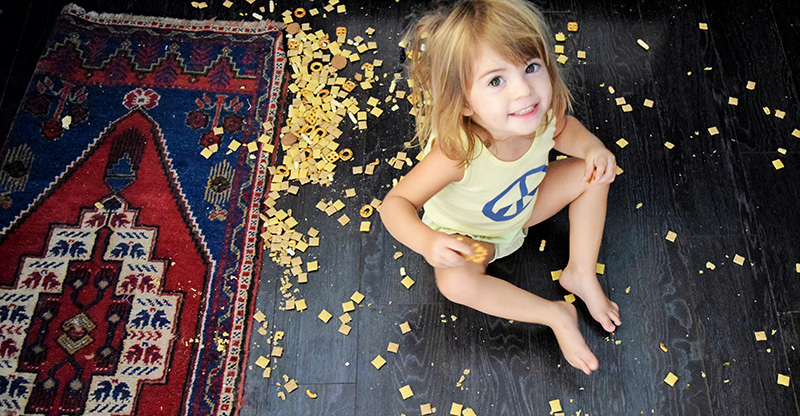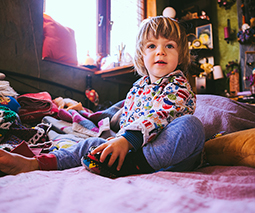The genius tactic that will make parenting your toddler easier

Let’s be honest – toddlers are cute, curious and funny but they can also be challenging and highly erratic. Prone to tantrums, making a mess and not listening, often it can feel like they’re deliberately testing your patience and your sanity.
When it happens over and over again, it’s easy to slip into a negative mindset about their ‘misbehaviour’ and start taking it personally as parents. Because despite your best effort and guidance, your child is choosing to defy you and ‘make things difficult’, or so it seems.
Introducing toddler expert Anthony Semann
Anthony Semann sees things differently. A former early childcare educator who’s now a well-respected researcher and keynote speaker on the topic, he knows what really makes toddlers tick. He’s also a strong advocate for young children, who warns against using derogatory labels like ‘terrible twos’ and ‘three-nager’ and much prefers to present them in a refreshingly positive light.
At Babyology’s recent Tackling The Toddler Years workshop, he celebrated toddlers as “energetic explorers” and “tireless experimenters” while also acknowledging the tendencies they’re (in)famous for.
“As a toddler, I was not built to sit still, to keep my hands to myself, to take turns, to stand in line and to keep quiet all the time. I need motion, I need novelty, I need adventure, I need to engage in this world with my whole body, and I need to play.”
Then he shared this game-changer – a key to simultaneously understanding your little one and making parenting a lot less stressful:
“See the world through their eyes.”
A fresh perspective on toddlers
It’s a simple shift of focus, but it’s one he says can drastically change how you view your toddler’s behaviour. Seeing things from their point-of-view will help you understand their feelings and unravel the method in their madness. It will grant you more patience and empathy, which will dissolve any ‘us versus them’ animosity that’s been building.
So when they crack it in the car in a traffic jam, it’s not because they’re being ‘emotional’ or want to make things worse, they’re just bored and want to get out (probably like you do).
“We just assume that children are born knowing how to behave and they [aren’t],” says Anthony. “They’re trying to figure out the behaviour of others and they’re trying to figure out the world around them. They may not behave in ways that we think are appropriate, but it is appropriate for someone who we still count their age in months.”
Reframed through this gentle lens, their behaviour becomes less about being deliberately disobedient or clumsy, and more about them slowly learning and navigating their brand new world. With that in mind, some of toddlers’ most ‘annoying’ habits – like spilling food or drinks – can be seen more as developmental growing pains than them consciously trying to ruin your day.
“[They’re] moving from dependence to independence and again that can be really challenging when your toddler wants to feed themselves and you see half the food is actually on the ground, not in their mouth,” explains Anthony.
“They are going to drop things because they’re learning to take care of themselves … we sometimes think toddlers are out to get us but actually developing some coordination of your muscles takes a while and you fumble through it as a [young] human being.”

Sharing can be another pain point for toddlers but seen through their eyes, Anthony says it’s easy to see why they can struggle. Of course, they don’t want to give up their beloved toys with those random kids in the park no matter how much you insist on them being ‘nice’ – they’re their toys, after all!
In this case, Anthony suggests parents lead by example and help show them the way.
“How am I going to teach a child to share? Well number one, I’m going to demonstrate sharing with them,” he explains. “So I’m going to sit at this dinner table with some pencils and some paper and I’m going to start colouring in. They’re going to be like ‘what?’ and I’ll say ‘I’d like to share with you’. That’s what I would do – intervene by teaching it.”
Above all, Anthony urges parents to celebrate their little ones, to be patient and understanding. They might be a handful but that’s because they’re learning, growing and blooming on a daily basis. Soon they’ll be bigger and onto the next phase, so enjoy this cheeky trip while it lasts.
This post is brought to you by NAN® Toddler, an event partner for the Tackling The Toddler Years workshop.









